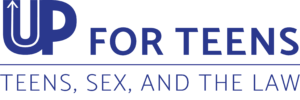
Programs
Children’s Heroes Addressing Maltreatment & Prevention with Innovative Optimal New Solutions (CHAMPIONS)
UP FOR CHAMPIONS, in partnership with THE UP INSTITUTE, supports the professionals working to solve child abuse and neglect globally, through advocacy, public education, and family support programs. It is a nonprofit 501(c)(3) organization that aims to create safe and healthy communities for children and their families. UP FOR CHAMPIONS works with community, state, and national organizations to expand and disseminate knowledge about child abuse and neglect.
Victim advocates provide services and resources to ensure a consistent, coordinated, and comprehensive network of support for children and families in crisis. Research demonstrates that parent/caregiver support is essential to reducing trauma and improving outcomes for children and family members. Evidence-based research practices and ongoing access to comprehensive services are critical to a child and family’s well-being and their ability to participate in the investigation, prosecution, intervention, and treatment. This curriculum has been approved by the National Children’s Alliance under the 2023 Standards for Accreditation as meeting the requirements for foundational training for Victim Advocates.
Researchers have found that spanking is the most prevalent risk factor for child injuries and fatalities. Yet, upwards of 70 percent of parents admit to using physical punishment. Many professionals are not prepared, either academically or in practice, to navigate this longstanding cultural landmine. This training aims to educate participants on the harms of corporal punishment and provide them with the tools to have this difficult conversation in an effective and efficient way. It also offers alternative, more effective parenting strategies.
A No Hit Zone is a simple solution to address a key risk factor for child abuse. More than 50 years of empirical research has demonstrated the detrimental effects of corporal punishment (CP) on children. However, in the United States, CP is an entrenched social norm as many parents continue to have favorable attitudes towards its use. A No Hit Zone sets a precedent within the community of a safe and caring environment for families and staff, while promoting effective parenting techniques. UP executives designed No Hit Zone materials for public use because research demonstrates it is a promising practice for changing attitudes about parent-to-child hitting. For additional information and resources visit our No Hit Zone Initiative and download an NHZ toolkit.
Mandatory reporting is a duty that extends beyond one’s professional capacity. This training program helps professionals with recognizing, responding, and resolving child maltreatment. It covers the responsibility of mandatory reporters to report child sexual and physical abuse. Participants will gain a comprehensive understanding of the reporting obligations of mandatory and permissive reporters and learn about whistleblower protection laws for mandatory reporters.
The Teens, Sex, and the Law program helps teens make educated and informed decisions. An evidence-informed, school-based training that provides teens and guardians with information to help them make educated decisions concerning relationships and sex. This program covers relevant laws pertaining to teen sexual activity with respect to age, alcohol, texting, sexting, internet, and pornography. Teens will learn the impact of their decisions regarding sexting and online activity and the legal actions that may occur.
Testifying is stressful for mental health providers, witnesses, and victims, particularly for children and adolescents. Yet, child protection workers, law enforcement officers, and other professionals regularly testify, often under subpoena. This is a multidisciplinary training program focused on the practical aspects of preparing and presenting in court, as well as strategies for navigating the judicial process in child abuse cases. This program also offers training on how to prepare families and children for testimony and how to advise attorneys and advocates on preparation. Another aspect of the program teaches how to recognize the necessary attributes of a forensic interviewer, interview training, as well as context and components of a trauma and culturally informed child forensic interview.









